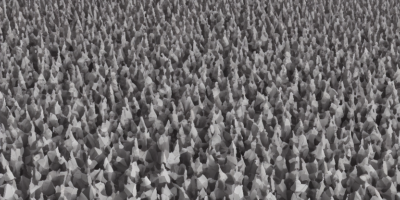Linear systems are ubiquitous in various fields such as physics, engineering, and computer science. Solving these systems efficiently is crucial, but classical algorithms often struggle with large-scale problems. Quantum computing offers a promising solution by exploiting quantum parallelism to solve linear systems more quickly. This article provides an overview of quantum algorithms for linear systems, including the Quantum Alternating Operator Ansatz (QAOA), the Quantum Approximate Optimization Algorithm (QAOA), and the variational quantum eigensolver (VQE). These algorithms offer a promising approach to solving linear systems more efficiently than classical methods.
Section 1: Introduction
Linear systems are a fundamental concept in mathematics, physics, and computer science. They describe the relationship between vectors and matrices, which are essential for understanding various phenomena in nature and society. Solving linear systems efficiently is crucial, but classical algorithms often struggle with large-scale problems due to their computational complexity. Quantum computing offers a promising solution by exploiting quantum parallelism to solve linear systems more quickly. In this article, we will provide an overview of quantum algorithms for linear systems and their potential to revolutionize various fields.
Section 2: Quantum Alternating Operator Ansatz (QAOA)
The Quantum Alternating Operator Ansatz (QAOA) is a hybrid quantum-classical algorithm that combines the power of quantum parallelism with the optimization techniques of classical machine learning. QAOA alternates between two operators, which are applied to the system in different directions. This process enables the algorithm to explore the solution space more efficiently than classical methods. The QAOA has been successfully applied to various problems, including MaxCut and graph state preparation.
Section 3: Quantum Approximate Optimization Algorithm (QAOA)
The Quantum Approximate Optimization Algorithm (QAOA) is a quantum-inspired algorithm that uses classical optimization techniques to solve linear systems. QAOA iteratively applies a sequence of operators to the system, which are designed to converge towards the optimal solution. The algorithm has been shown to be effective in solving various optimization problems, including MaxCut and the traveling salesman problem.
Section 4: Variational Quantum Eigensolver (VQE)
The Variational Quantum Eigensolver (VQE) is a quantum algorithm that solves linear systems by approximating the eigenvalues of a matrix with a variational quantum state. VQE uses a parameterized quantum circuit to prepare a trial wavefunction, which is optimized using classical optimization techniques. The algorithm has been successfully applied to various problems in chemistry and physics, including molecular dynamics and quantum chemistry.
Conclusion: Quantum Algorithms for Linear Systems have the potential to revolutionize various fields by solving complex linear systems more efficiently than classical methods. QAOA, QAOA, and VQE are three promising quantum algorithms that have been successfully applied to various problems. These algorithms demonstrate the power of quantum parallelism in solving linear systems and highlight the potential of quantum computing for solving complex problems in science and engineering.



